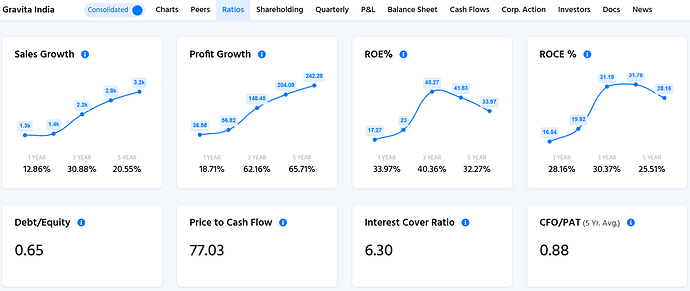Donald Trump’s return to the White House could upend some industries and the economy. But stocks and other assets are soaring on hopes that a new, business-friendly era beckons.
Posts in category All News
Mutual funds need to separately disclose expenses, half-yearly returns for direct and regular Plans says SEBI (06-11-2024)
Powered by Capital Market – Live News
Power Grid Q2 Results: Net profit flat YoY at Rs 3,793 crore; Rs 4.50 per share dividend announced (06-11-2024)
Power Grid reported a flat net profit of Rs 3,793 crore in Q2FY25. Revenue from operations was also flat at Rs 11,278 crore. The board approved an interim dividend of Rs 4.50 per share. The company has also approved the sale of a 26% stake in four associate companies to PowerGrid Infrastructure Investment Trust (PGInvIT).
Congress chief Mallikarjun Kharge dissolves party unit in Himachal Pradesh (06-11-2024)
In a significant move, Congress President Mallikarjun Kharge dissolved the entire Himachal Pradesh Congress Committee, including district and block levels, effective immediately. This decision, aimed at restructuring the state unit, comes amidst internal factionalism that plagued the party during recent elections. Outgoing state chief Pratibha Singh, now a member of the Congress Working Committee, held the position since 2022.
Gravita India success story (06-11-2024)
Questions Worth Asking in the Upcoming Q2 FY25 Concall
From the above graph, we can notice that while the revenue contribution from the overseas business increased from 36% in FY22 to 38% in FY24, the profit share dropped significantly from 75% to 27%, and the capital employed in overseas operations rose from 31% to 49% over the same period.
- What are the factors driving this disconnect between growing revenue and declining profit contribution?
- What specific challenges have been affecting the efficiency of the overseas business?
- What measures are being implemented to enhance profitability and returns on the increased capital employed?
(Image Source: Finology Ticker)
From the above image of Finology Ticker, we can see that the CFO By PAT ratio is less than 1. It means the company is unable to convert its profit to cash.
Update on the New Overseas Acquisition
Gravita’s subsidiary has signed an MOU to acquire an 80% stake in a waste tyre recycling facility in Romania, which can process around 17,000 MTPA (Metric Tons Per Annum), for ₹32 crore. The remaining 20% will be owned by local partners in Romania.
This move marks Gravita’s entry into the European recycling market, significantly increasing its potential market reach, with Europe’s waste recycling industry valued at USD 155 billion in 2022.
This expansion into new regions and products is expected to be a key driver of the company’s future growth.
Multidecadal Tailwind in the Recycling Business
India’s battery recycling rate is just ~20%, far below the 60-80% as seen in Western countries.
Currently, 65-85% of recycling is handled by the informal sector.
However, recent regulatory changes are rapidly shifting this trend toward formal, organised players, creating a long-term earnings opportunity.
1️. Battery Waste Management Rules (BWMR): The 2022 BWMR has set the stage for formalising the industry by encouraging investments in collection networks and allowing legitimate recyclers to trade Extended Producer Responsibility (EPR) credits. This is pushing more business towards organised players.
2️. Extended Producer Responsibility (EPR): Manufacturers are now required to take responsibility for the entire lifecycle of their products, including post-consumer waste. They must collect at least 70% of their sold batteries once they reach end-of-life. This means more scrap batteries flowing into the formal channels, boosting business for organised recyclers. The mandate is expected to increase the volume for organised recyclers by 3x to 5x going forward.
The EPR rule mandates that recyclers can only recycle up to their capacity limit. The entity cannot outsource the recycling work. This mandate provides the clear reason for capacity expansion and utilisation within the industry.
3️. Reverse Charge Mechanism (RCM): Registered recyclers are now required to pay tax on scrap, even if they buy it from unregistered suppliers. This creates a formal tracking system and is expected to reduce the dominance of unorganised players, who currently handle 65% of the market.
The introduction of the RCM is a game-changer in levelling the playing field in the lead recycling market. Shifting the responsibility for GST deduction and deposit to the scrap buyer will effectively reduce the cost advantage that unorganised players gained through GST evasion (18% GST on scrap materials). As a result, it will benefit the organised sector. In our opinion, this could be an even bigger tailwind than the BWMR rule.
4️. EV Battery Recycling: The global EV battery recycling market is still in its early stages. However, as the first generation of EVs nears the end of its lifecycle (in about 5-8 years), India’s demand for recycling infrastructure is expected to skyrocket. While India’s lithium-ion recycling facilities are still developing, the first major wave of recycled EV batteries is projected globally by 2028-2030, and India will need to step up quickly.
5️. Vehicle Scrappage Policy: India’s Vehicle Scrappage Policy is designed to retire old, polluting vehicles, significantly boosting the battery recycling industry. As more end-of-life vehicles are scrapped, especially older models with lead-acid batteries, the recycling volume is expected to rise.
Bitcoin Hits a Record as Crypto Investors Root for a Trump Win (06-11-2024)
Bitcoin’s price went above $75,000, breaking the record that the digital currency set in March.
Gravita India intimates of hike in shareholding in Navam Lanka (a group company) (06-11-2024)
The Board of Directors of Navam Lanka, Sri Lanka, a step-down subsidiary of the company in which Gravita Group through Gravita Netherlands B.V. is holding 52% of its share capital (herein after NLL ) has completed the repurchase/buyback of 2,29,087 shares from its existing shareholders representing 25.56% of its total stated capital. The price per share for buyback was LKR 3,530 per share and total buyback value is approx. Rs 23.00 crore which will be paid to shareholders from the reserves and surplus of Navam Lanka.

